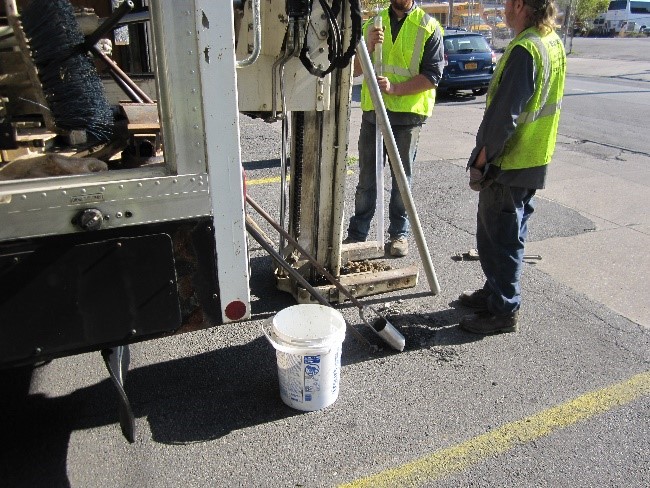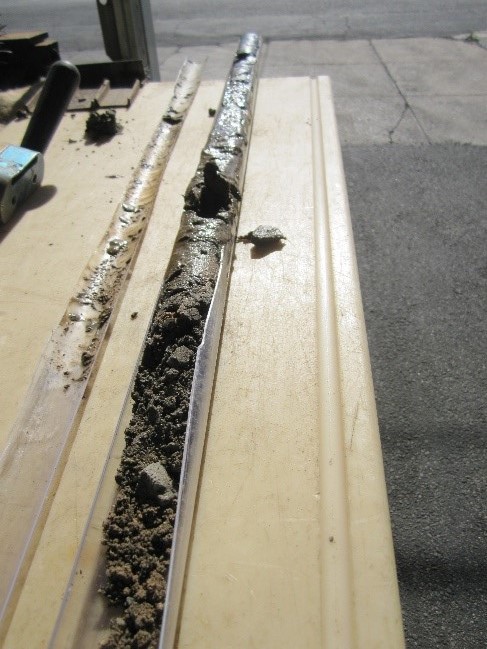
A geotechnical soil report is an important document that provides crucial pre-construction geotechnical information compiled for a property following a soil investigation. It serves as a guide for engineers during the design phase of a construction project, and it dictates how loads should be applied to a site based on site specific conditions. The geotechnical soil report provides guidance for planning how best to prepare the site and complete site excavation and stockpiling to support the proposed construction.
Why Is It Important?
Failing to adequately check the soil conditions on a site before completing a design involving excavations or building can cause cost overruns, project delays, safety accidents, and long-term damage to your project.

What Is in a Geotechnical Soil Report?
A geotechnical soil report should describe:
- The types and characteristics of soils found on the property
- The bearing capacity of the soils
- Soil preparations required for the proposed construction
- Any locations found that may require special preparation or treatment for construction
- If groundwater will affect the proposed construction
How Is Geotechnical Information Collected?
The soil conditions on a property can be identified by a number of methods, but they are commonly found by utilizing a small drill rig to complete the Standard Penetration Test. The drill rig is additionally used to collect select soil samples at a number of locations throughout the site for characterization by a qualified soil expert.
Need help planning your next construction project? Walden has Professional Engineers and Geologists on staff who have years of experience in evaluating soil for proper preparation of proposed development on a site. Contact Walden at 516-271-1948 and download our contractor services guide to learn more.
